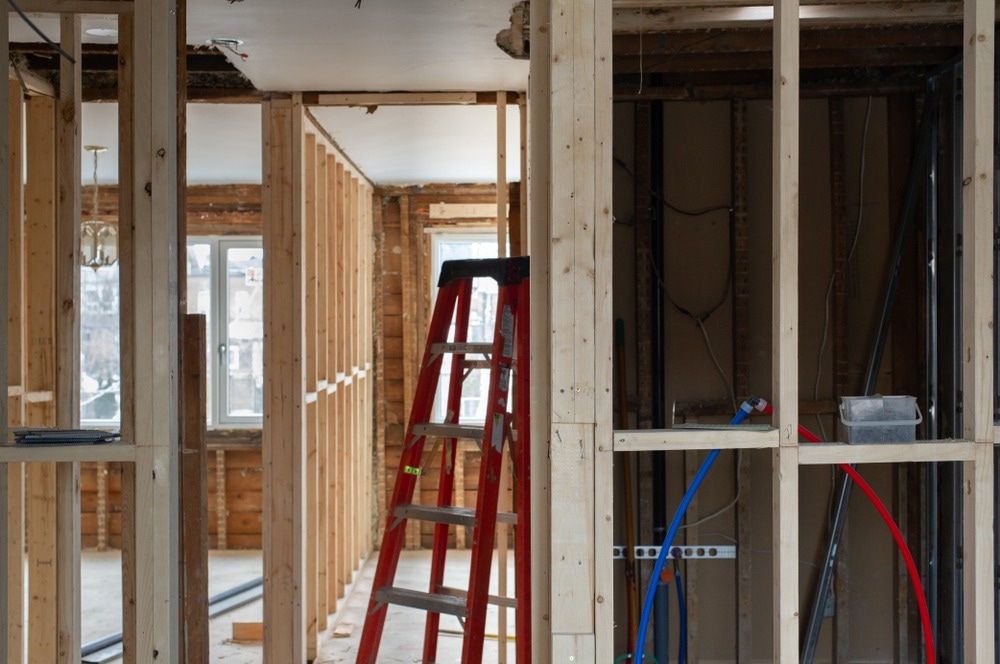A modular carbon-neutral housing retrofit startup, ecoworks, has recently raised $7.7 million in private funding to deliver its carbon-free retrofitting project for existing residential buildings. The firm, based in Berlin, Germany, designs roof and facade elements that wrap around existing structures and act as a second skin. The investment comes amid a growing global impetus to try to reduce the ecological impact of the built environment.

Image Credit: Cameris/Shutterstock.com
The Need for Retrofitting
Buildings in Europe are responsible for about 40% of the continent’s energy consumption and 36% of its carbon dioxide (CO2) emissions. In addition to this, around 35% of European building stock was built over 50 years ago and three-quarters of buildings in the continent are deemed to be energy inefficient.
In response to this situation, the European Union (EU) has set out plans for improving the existing building stock’s energy performance.
Two main EU directives have been put in place to carry this objective out: the Energy Efficiency Directive (known as the EED) since 2012, and the Energy Performance of Buildings Directive, which was revised in 2018.
The EED laid out a suite of binding regulations that were intended to support a 20% energy efficiency target for EU building stock within the decade.
The latter Energy Performance of Buildings Directive included requirements for all commercial and residential buildings to achieve a nearly zero energy (nZEB) energy efficiency certificate by 2050. The EU defines nZEB as referring to buildings that require nearly zero energy to run and acquire this energy from (ideally) on-site renewable energy sources.
While the requirements of the nZEB standard may seem technologically ambitious, there are in fact numerous viable solutions for retrofitting and constructing buildings that need almost zero energy to run.
In fact, recent studies have shown that in some countries, and depending on the country’s exact local definition for the nZEB standard, it is actually more cost-effective to build or refurbish to nZEB requirements than to choose less energy-efficient methods.
That being said, there is still very little refurbishment underway for European building stock. Only 0.4% to 1.2% of buildings in the continent are undergoing refurbishment projects at any given time, and only 5% of this already tiny fraction is believed to be creating high-energy efficiency structures.
Researching Retrofitting Rates in Europe
A study published by an international team of researchers in the journal Buildings in 2021 suggests that the type of retrofitting project currently undertaken in Europe typically will not result in a building that meets nZEB standards.
The researchers found that most retrofit projects only address a single building element, and many of these are only for maintenance rather than upgrading components to make the building meet a higher energy efficiency standard.
The team contrasted these findings with recent EU-supported studies that say that 95% of buildings in the union have to be extensively retrofitted if member states are to reach carbon emissions targets.

Image Credit: Alessandro Cancian/Shutterstock.com
Modeling results indicated that the most common energy efficiency-based retrofitting project in the EU addresses the building envelope. Projects that upgrade heating and cooling systems are less likely to take place, while energy generation and energy storage refurbishments are the least common.
The authors of the paper included recommendations for more research to better understand the relationships between stakeholders such as policymakers, community bodies, and commercial developers. They said this would lead to a greater understanding of the interests, motivations, and possible alignment of the two that would most likely affect positive change in attitudes and behaviors regarding retrofitting for energy efficiency.
The Berlin-based startup ecoworks delivers carbon-neutral retrofitting projects to overhaul housing stock in Germany. Their recent funding injection will enable the company to automate the design process for retrofits in existing housing stock.
The company has already commissioned the first serial carbon neutral building renovation project in Germany and intends to scale its process up to work on more automation in planning processes. Plans are also in place to release a product that will increase levels of prefabrication in the retrofitting space.
New investors in this round included Warema Group, JLL Spark Global Venture, JLL’s investment arm, and Zacua Ventures and Blackhorn Ventures, which are both United States-based construction technology venture capital funds. PropTech1 and Motu Ventures, which have both previously invested in ecoworks, also participated in the latest funding round.
The ecoworks platform employs digital 3D planning and prefabrication techniques that move up to four-fifths of retrofitting activities away from the construction site and into factories, where energy efficiency is maximized and on-site renewables are more readily available.
The company says that it can complete a retrofitting project – transforming an extremely energy inefficient building into a carbon-neutral or carbon-positive building – in a matter of weeks.
More from AZoBuild: The Sustainable Utilization of Wood in Construction
References and Further Reading
Camarasa, C., et al. (2021). Energy-Efficient Retrofit Measures (EERM) in Residential Buildings: An Application of Discrete Choice Modelling. Buildings. https://www.mdpi.com/2075-5309/11/6/257
Paul, M. (2022). Ecoworks rakes in €7.7 million to boost carbon-free retrofitting for housing. [Online] Tech.eu. Available at: https://tech.eu/2022/06/02/ecoworks-rakes-in-eur77-million-to-boost-carbon-free-retrofitting-for-housing/ (Accessed on 7 July 2022).
Disclaimer: The views expressed here are those of the author expressed in their private capacity and do not necessarily represent the views of AZoM.com Limited T/A AZoNetwork the owner and operator of this website. This disclaimer forms part of the Terms and conditions of use of this website.